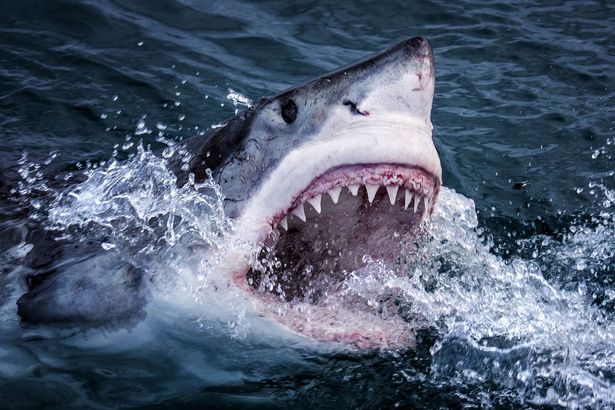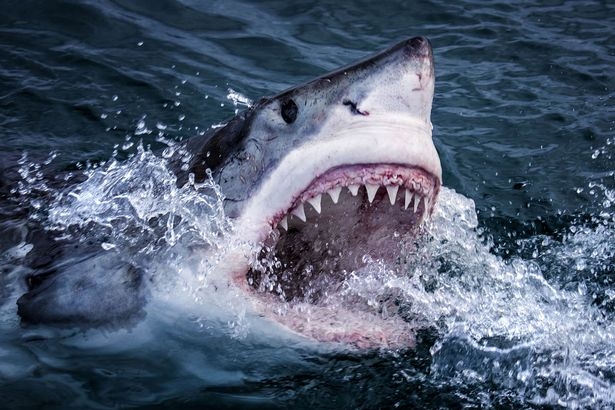Words by Wade Davis

It’s time to address the big white fish in the room. Yet again we’ve seen a shark attack off the Ballina coast, this time just a few days after the “eco barrier” shark-nets were abandoned. Despite anything with the “eco” prefix being as ecologically friendly as the Moroccan carpet seller is actually “my friend”, the upshot is that an integral part of Mike Baird’s $16 million shark defence strategy has been reduced to near-shore flotsam, and then another young surfer was chomped. Thankfully, he’s expected to fully recover.
The most recent attack isn’t related to the barrier’s failure, but it is completely related to the NSW and Australian governments’ failure to properly invest in shark-attack prevention strategies and research. This latest attack has reinvigorated calls for shark-fatal measures along NSW beaches, despite there being no conclusive studies that claim that shark culls and shark nets will effectively protect beachgoers.
Conversely, plenty of experts seem to believe the contrary. When the West Australian governments’ knees jerked up and they implemented their most-recent controversial cull, 100 scientists wrote an open letter of condemnation, claiming the measures to be ineffective and over-the-top. One problem with culls is that while they haven’t proven to be effective, they may also be damaging as they will ineffectually utilise resources that could have been used more productively, while providing the ocean-using public with a false sense of security. Culls could quite conceivably make the ocean a more dangerous place, lulling us into complacency while appealing to our less desirable impulses for revenge and fear.
What we need right now is calculated decision making from those in power. What we’re seeing instead is increased pressure on politicians from the proponents of shark culls, who are piggy backing off the affected communities’ indignation. To make matters worse, more sensationalist news outlets are fuelling outrage by appealing an already scared public’s worst impulses. In a thinly-veiled attempt to raise hysteria and sell more newspapers, some news services have relied on sensationalist language when describing what is in effect a scientific problem, opting to describe sharks as “man-eating monsters”, and wounds as “horrific”. Australia’s most famous surfer, Tony Abbott, has gone one step further than shark nets and culls, coming out on Melbourne’s 3AW radio in favour of a North Coast commercial shark fishery, saying that in “a choice between people and animals, [he’s] on the side of the people every time” – especially if the people can turn a nice little profit off it.
The issue is an emotive one, especially for surfers in the affected areas, as well as for the family and friends of those of us eking out our surfing lives under the spectre of being fish food. Policy, however, should be made without emotion; policy should be made with the best possible outcome in mind, not the appeasement of the more rabid elements of the electorate.
And the only way that governments can form effective policy is if they have a better understanding of the problem, and for that to happen there desperately needs to be more money invested in research. Just this year the federal government pledged $150 million dollars to providing armed security for the already armed police, adding to the $2.2 billion already allocated to counter-terrorism measures, all in response to an international phenomena that has claimed three lives on Australian soil.
In contrast, since the December 2014 Lindt Café siege there have been five fatal shark attacks across Australia, with another 11 non-fatal encounters occurring between Newcastle and the Queensland border alone. If it is indeed people and the preservation of human life that are the concern of the politicians, then surely the money allocated for shark research and preventative measures should be more than a mere 10% of that allocated to protect those who we’ve entrusted to protect us, against a threat that has claimed less lives. The spectre of international terrorism is real, but Down Under it’s far more reasonable to be afraid of what lurks beneath, rather stalks above.
For mine, the only acceptable solution is one that actually prevents shark attacks from happening, not a knee jerk band-aid response to the undercurrent of fear that is currently running through our community. If the research indicates that culls actually do protect beachgoers, then so be it, kill the bastards, but that currently isn’t the case. At the moment politicians at the state level are playing politics with surfers’ lives, while the scandal-starved Sydney rags are recklessly inflaming the whole situation. It’s time for our elected leaders to treat this is a problem that can be solved – and invest the resources to do so, because until we get an understanding of these animals, none of us are going to feel comfortable in the water, and indeed, more young surfers will be bitten.



